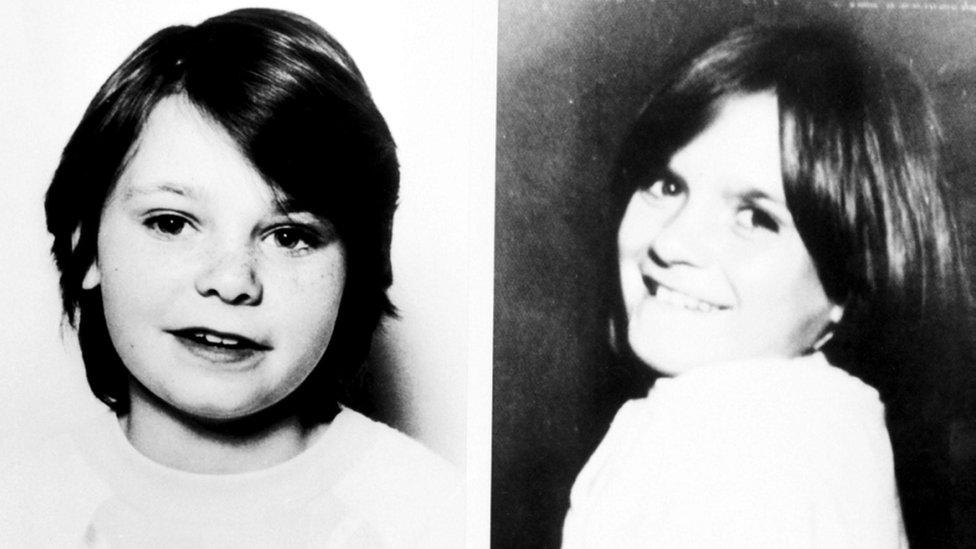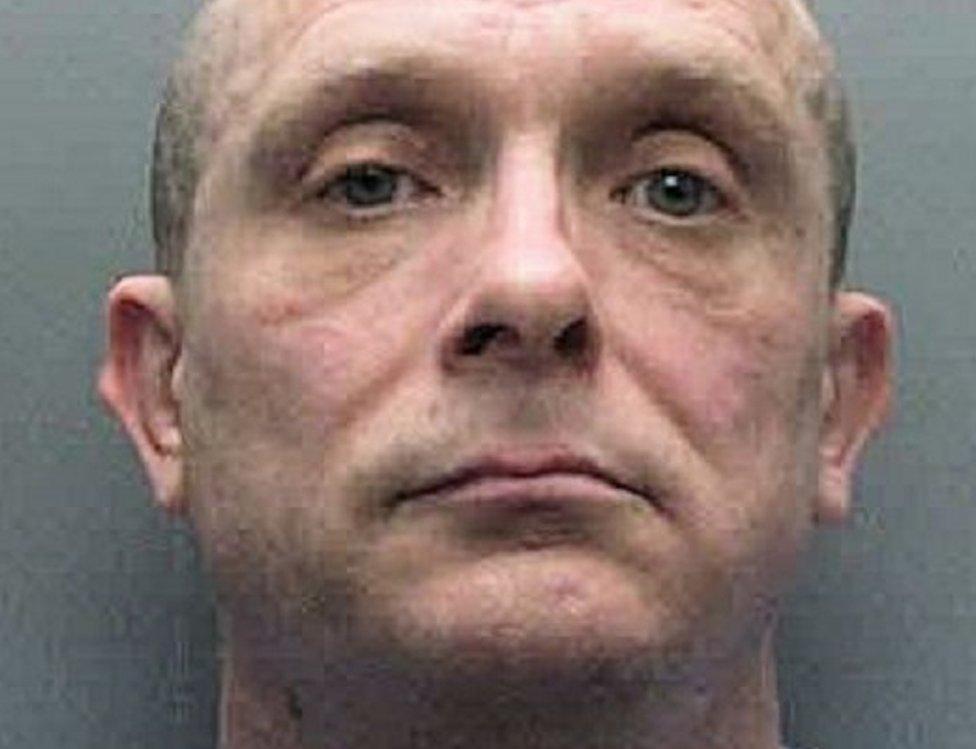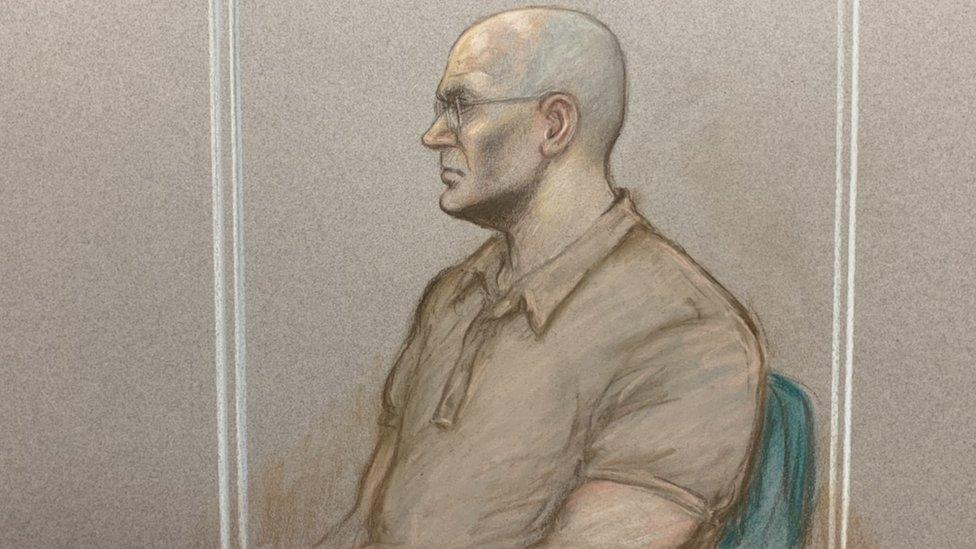Russell Bishop 'murdered two Brighton schoolgirls in 1986'
- Published

Karen Hadaway (left) and Nicola Fellows were murdered in 1986
A man has gone on trial for the second time accused of murdering two nine-year-old girls 32 years ago.
Russell Bishop, 52, strangled Nicola Fellows and Karen Hadaway who were found dead in woods near Brighton in October 1986, the Old Bailey heard.
He was cleared of their murder after a trial in 1987, jurors were told.
The court heard three years later, in February 1990, he was convicted of kidnapping and trying to kill a seven-year-old girl, also in Brighton.
Prosecutor Brian Altman QC said the victim was able to identify Bishop and that, together with "scientific and other compelling evidence", led to his conviction at Lewes Crown Court in December 1990.

Russell Bishop was cleared of murdering Nicola Fellows and Karen Hadaway after a trial in 1987
The court heard Bishop's earlier acquittal for the murders of Nicola and Karen was quashed at the Court of Appeal in light of new evidence following advances in DNA testing.
Mr Altman said: "That means the defendant can be prosecuted again based on the evidence that existed then and the new evidence that is available now."
Mr Altman said similarities between the cases could lead to the "sure conclusion" Bishop was responsible for murdering Nicola and Karen.
"There is other compelling evidence that this man was the killer," he added.
Bishop denies the charges.
The court heard the killings led to the largest and longest-running inquiry Sussex Police has ever known.
Nicola and Karen, who were friends and attended different schools in the Brighton area, had gone out to play after school on 9 October 1986, the jury was told.
Sexually assaulted
The court heard they both lived in the same street in Moulsecoomb near Wild Park, in the South Downs, which has a grassy bank rising to dense woods.
Mr Altman said it was there - "a mere half a mile or so from their homes" - that the girls were found dead on 10 October.
A massive police search led to the "grim discovery" of the friends' bodies.
The court heard that Bishop joined the search for the girls.
At one point Bishop told a police officer he would not like to continue searching on his own, adding he would "hate to find the girls, especially if they had been messed up", jurors heard.
Mr Altman said: "This was not the only time that day the defendant would say such a thing, revealing, we suggest, the knowledge that only he then had of what had become of the girls."
Post-mortem examinations showed both girls were strangled to death and sexually assaulted.
The court heard, had the girls lived, Nicola would now have been 41 and Karen would have been 42 in December this year.

'Afraid of the dark'
By Helena Lee, BBC News Correspondent, at the Old Bailey
Court 16 of the Old Bailey was taken back to the October afternoon 32 years ago when the schoolgirls were found dead in a wood just half a mile from their homes.
Two nine-year-old friends who'd been out to play when they went missing. Girls who'd been afraid of the dark.
Listening in court on the first day of the trial were their families.
Karen Hadaway's mother, Michelle Hadaway, sat to the side of the dock but out of sight of Russell Bishop, the accused.
She gripped her two daughters' hands as they sat by her side and closed her eyes as the jury was told where the girls were found.

Mr Altman told jurors the events in the case took place well over 30 years ago and the scene had inevitably changed.
He said jurors would have to make allowances for the "real possibility of failing or faulty memory".
Some witnesses were now dead or too ill or infirm to attend, he said.

Russell Bishop's earlier acquittal for the murders of Nicola and Karen was quashed at the Court of Appeal
Mr Altman also told the court the case was built mostly on factual circumstances, but said: "Do not think however that a circumstantial case is some poor relation to a case based on direct evidence such as accounts from eyewitnesses.
"There are rarely witnesses to killings like these."
He said the "den" where the girls were found was a small clearing hidden from view.
And the prosecutor told the jury: "Plainly the main, if not the only, motive here was sexual and paedophilic."
Jurors heard Nicola was friendly, outgoing and would speak her mind, while Karen was described as "a very sensible girl who knew right from wrong" but could be cheeky.
The trial continues.